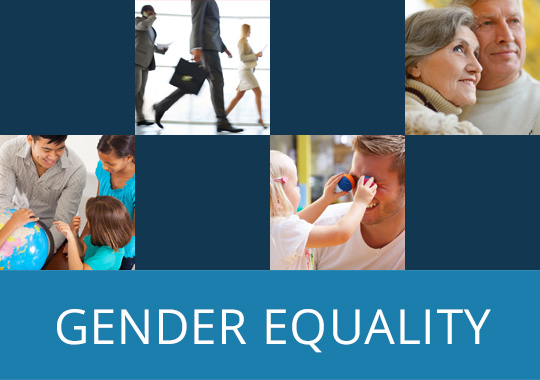Combating Gender Stereotypes in and through Education
with the participation of the Council of Europe
Network of National Focal Points on Gender Equality
Helsinki, 9-10 October 2014
organised by the Council of Europe
in partnership with the Ministry of Education and Culture of Finland
Venue: Helsinki Congress Paasitorni
Paasivuorenkatu 5 A00530 Helsinki
Education is a basic human right recognised by international law, notably by the European Convention on Human Rights. Through compulsory education, children and young people, whatever their gender, are prepared and empowered to fully participate in society. The education system sets the basis upon which countries preserve their heritage and contribute to their overall development and prosperity.
A change in gender relations, women’s empowerment and abolishing negative gender, sexist and sexual stereotypes are key to achieving gender equality and benefit entire societies. By shaping gender representations, attitudes and behaviours, education is an essential factor to combat stereotypes and bring about social and cultural changes. The promotion of gender equality in education is a prerequisite to the achievement of de facto equality between women and men in all spheres of life in society.
Against this background, the Gender Equality Commission has defined education as one of the key priorities and this issue has been taken on board by the Council of Europe in its Strategy on Gender Equality a decision which was echoed by the National Focal Points at their 1st annual meeting (Amsterdam, 5 July 2013) at which they decided that this, their 2nd annual conference, should focus on education.
The Conference will seek to:
Raise awareness among government officials and school professionals on persisting inequalities in education and how it affects girls and boys and their future;
Present the findings of the first monitoring report of the Committee of Ministers’ Recommendation on gender mainstreaming in education;
Exchange good practices to promote an education free from gender stereotypes and identify ways to implement the measures included in the Committee of Ministers’ Recommendation on gender mainstreaming in education;
Facilitate partnerships and networks among stakeholders including government officials, school management professionals, teachers, trainers and training institutions, parents, and civil society
Support member states in implementing existing standards, including the Committee of Ministers’ Recommendation on gender mainstreaming in education.
Opening remarks: Snežana Samardžić-Marković, Director General of Democracy, Council of Europe
Opening remarks: Krista Kiuru, Minister for Education, Science and Communications, Republic of Finland
Guest of Honour: Tarja Halonen, Former President of the Republic of Finland
Armelle Loghmanian (France) “How are girls and boys affected by gender stereotypes: from playground to workplace”
Pauline Moreau (Ireland) "Role of the education system in gender based inequality" (Powerpoint Presentation)
Cocky Booij (Netherlands) "Ensuring continuity in the combat of gender stereotypes throughout the education system" (Powerpoint Presentation)
Ilse Bartosch (Austria) "Impact of the school system on masculine and feminine identities"
Maria Teresa Alvarez Nunes (Portugal) "Combating gender stereotypes in the education system success stories"
Steven De Baerdemaeker (Belgium) "School curricula and career guidance" (Powerpoint Presentation)
Ineta Upeniece (Latvia) "Teaching material/teachers"
Hanna Björg Vilhjálmsdóttir (Iceland) "Teaching material/teachers"
Elisabeth Lønnå (Norway) "Mainstreaming gender in the education system"
Bernard Wicht (Switzerland) "Challenges in implementing the Recommendation on gender mainstreaming in education"
John Hamer (United Kingdom) "Gender issues in history teaching" (Powerpoint Presentation)
Maya Chivi (Lebanon/Canada) "Gender Equality outside the classroom"
Jens Krabel (Germany) "Combating stereotypes at pre-school level"
Kira Appel (Denmark) "Combating stereotypes at pre-school level"
Carolina Suárez García (Spain) "Parents role in combating gender stereotyping"
Closing remarks: Marja Ruotanen, Director of Human Dignity and Equality, Council of Europe
Maureen Bohan (Ireland) "Conclusions and general recommendations by the General Rapporteur"



